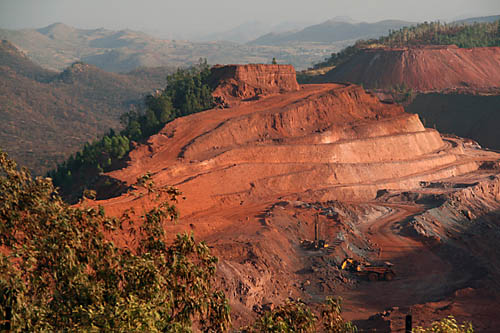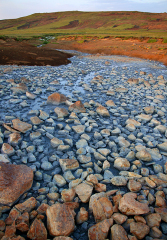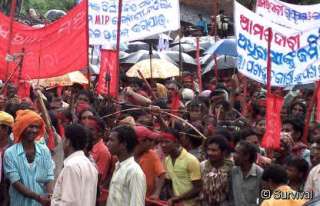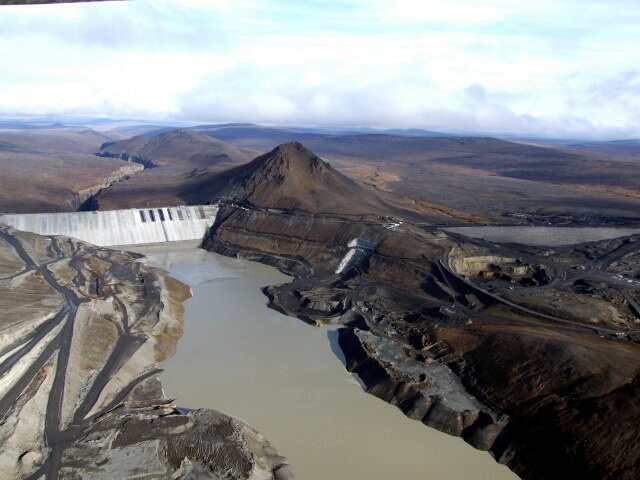Aug 23 2010
6 Comments
Battles over Bauxite in East India: The Khondalite Mountains of Khondistan
 By Samarendra Das & Felix Padel
By Samarendra Das & Felix Padel
(Article for ‘The Global Economic History of Bauxite’, Canada 2010)
Most critiques of the aluminium industry focus on refineries and smelters, which are among the worst culprits of global heating. But bauxite mining excavates a huge surface area, and has caused environmental devastation in Jamaica, Guinea, Australia, India and recently also in Vietnam.
Perhaps no bauxite deposits are located in more sensitive areas than those in India, whose most significant deposits occur as cappings on the biggest mountains in south Orissa and north Andhra Pradesh. Tribal people live in hundreds of communities around these mountains, which they regard as sacred entities for the fertility they promote. Appropriately, the base rock of these mountains was named ‘Khondalite’ after the region’s predominant tribe, the Konds. Early geologists noticed the perennial streams flowing from these mountains, and modern evidence suggests that their water regime is severely damaged when the bauxite cappings are mined.
Bauxite has probably never been sold for a price commensurate with the damage done by mining it. For Konds and other small-scale farmers in East India, the aluminium industry brings a drastic disturbance to their way of life and standard of living that amounts to cultural genocide. If mainstream society sees these bauxite cappings of India’s Eastern Ghats as resources standing ‘unutilised’, Adivasi culture understands them as sources of life, and sees mining them as a sacrilege based on ignorance. Read More




 Since 2002, when work began on constructing the Kárahnjúkar dam, which today provides electricity to Alcoa’s aluminum smelter in Reyðarfjörður, until end of the year 2009, 1700 work related injuries have been reported in relation to the dam’s construction. 120 of those injured are still disabled from work, ten of them having irrecoverable injuries – and four workers have died as results of their accidents.
Since 2002, when work began on constructing the Kárahnjúkar dam, which today provides electricity to Alcoa’s aluminum smelter in Reyðarfjörður, until end of the year 2009, 1700 work related injuries have been reported in relation to the dam’s construction. 120 of those injured are still disabled from work, ten of them having irrecoverable injuries – and four workers have died as results of their accidents. It has hardly escaped the attention of anyone living in Iceland of late, that the Canadian geothermal company, Magma Energy, recently bought Geysir Green Energy´s (another geothermal energy company) stock in HS Orka (southwest-peninsula power company), making Magma a majority stockholder with 98,5% partnership. Magma´s purchase of GGE´s stock comes as no surprise whereas it´s been clear from the onset that Magma intended to claim majority ownership over HS Orka.
It has hardly escaped the attention of anyone living in Iceland of late, that the Canadian geothermal company, Magma Energy, recently bought Geysir Green Energy´s (another geothermal energy company) stock in HS Orka (southwest-peninsula power company), making Magma a majority stockholder with 98,5% partnership. Magma´s purchase of GGE´s stock comes as no surprise whereas it´s been clear from the onset that Magma intended to claim majority ownership over HS Orka.